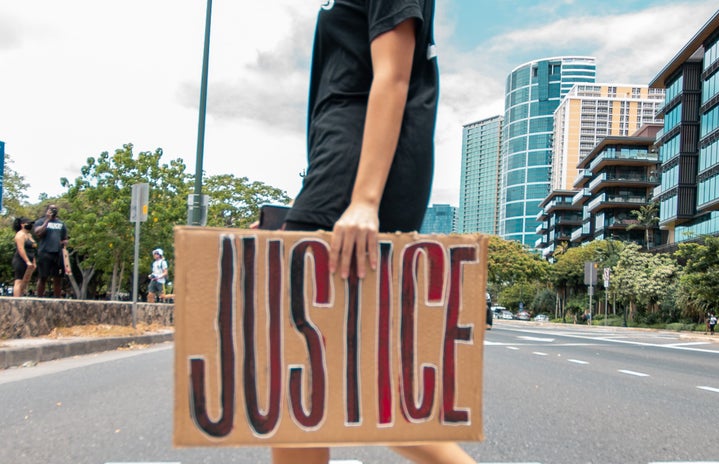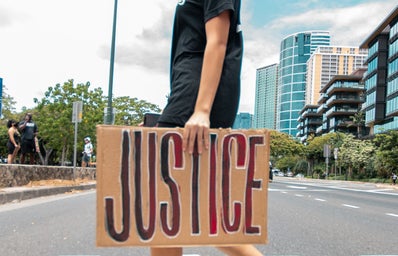Racism towards Asians is not new. Anti-asian sentiment dates back to policies and ideologies like the Chinese Exclusion Act, Japanese internment camps, and “yellow peril.” However, the coronavirus pandemic has unarguably and dramatically increased the number of hate crimes against Asians and Asian Americans in the United States and elsewhere. Not only are these hate crimes violent and overt, spanning from the recent mass shooting in Atlanta to attacks in broad daylight, but many of these attacks have also been targeting Asian elders, resulting in countless deaths and even more injustice. As a Vietnamese American student and the daughter of two immigrants who came to the United States with nothing but their hopes for a better life, here is my response to the recent rise in Asian hate crimes and my recommendations on how to be an ally to the Asian community right now.
The Racist Politicization of the COVID-19 Pandemic
The COVID-19 Pandemic has led to racism against Asians and their businesses, which has only been propelled by racist comments from the Trump Administration. Former President Donald Trump is notorious for referring to the coronavirus as the “Kung Flu” and the “Chinese Virus.” These derogatory terms further anti-Asian racism by putting complete blame on Chinese immigrants and Chinese Americans for causing the pandemic. Sentiments like these, especially when spread at such a high level of political power, build xenophobia and marginalize Asians and Asian Americans. Additionally, it allows Americans to blame all Asians for the pandemic, rather than holding themselves accountable for their own efforts to slow (or in America’s case, increase) the spread of COVID-19. The Trump Administration’s allowance of racist comments during political debates and discussions on the pandemic have only increased the racist sentiment by Americans towards Asians, sparking decreased patronage at Asian-owned businesses, overt and violent hate crimes towards Asians, and an astronomical amount of injustice.
The Model Minority Myth
The commonly held “model minority” stereotype views Asians as naturally intelligent and successful, setting them as the ideal standard for other ethnic groups. This may seem like a compliment, but the model minority myth proves to be extremely detrimental to the Asian community. The model minority myth paints Asian lives to be perfect, when they are often far from it; we struggle to do well in school just like everyone else, our parents face discrimination at work for their appearances and accents, and our elders are criticized for speaking their native languages instead of English. This stereotype misrepresents the Asian experience as one that faces little challenges, when in actuality, we face many of the same struggles as other ethnic groups. The model minority myth downplays the lengths that Asians and Asian Americans must go to to achieve success, like receiving good grades, attending good colleges, and getting high-paying jobs. Many Asians are immigrants who came to the U.S. with no money and no education. These immigrants, like my parents, must work their way up the social ladder to make a living; they are not predisposed to success like the model minority myth likes to believe. This misperception also causes people to look down upon Asians who are not smart or successful and keeps Asians from asking for help when they need it, in fear that they will look like a failure. This mental health stigma in the Asian community results in many cases of depression and suicide for Asians and Asian Americans. The model minority myth also disregards the millions of Asians who are not living these seemingly perfect lives – those of which are living in poverty and working low-wage jobs. Therefore, Asians are not the “ideal” minority and the rise is Asian hate crimes should be enough to prove that.
Lack of Allyship
During 2020 and its Black Lives Matter movement, we saw endless posts on social media about police brutality towards African Americans, racial justice, and the need for change. This movement is incredibly important and deserves every right to be publicized and to continue to be publicized. However, the movement to Stop AAPI (Asian American Pacific Islander) Hate has received much less publicity on social media and in the news. I believe that this is in part due to “cancel culture” and, as a result, performative activism. Last year, if people did not post about BLM on their social media accounts, they were “cancelled” for being ignorant towards the struggles of the black community and for refusing to present themselves as an ally. This led to a great deal of performative activism, when people “advocate” for causes just to look like a better person and to make them feel better about themselves, consequently performing few tangible actions for that cause and having no devotion to actually furthering the goals of that cause. The same individuals guilty of performative activism are now failing to post about the recent Asian hate crimes – some even posting completely irrelevant stories and pictures just to prove how little they are concerned about anti-Asian racism. Similarly, some users purposely choose not to post about the Asian hate crimes and promote other causes instead. For example, the murder of Sarah Everard has sparked a lot of activism for women’s safety and protection against male perpetrators. Sarah Everard and others’ stories have been deservingly shared on social media across the world, but many of these users have failed to share similar posts regarding the shooting at three Asian-owned and operated spas in Atlanta, Georgia on March 16th, despite most of the victims being female. Once again, the Black Lives Matter movement and the awareness surrounding Sarah Everard’s murder are incredibly important and are in no way less important than the Asian hate crimes, but this lack of allyship for the Asian community right now is incredibly shocking and disheartening, considering how greatly Americans indulge in Asian food, culture, and businesses.
Law Enforcement’s Passive Response to the Shooting in Atlanta
On Tuesday, March 16th, Robert Aaron Long, a 21-year old white male, opened fire on three separate Asian-owned and operated spas, killing eight people – six of them being Asian females – in the process. Long supposedly went to these spas often and saw the women there as a “temptation” to his “sexual addiction.” Because of this, local authorities have refrained from deeming this shooting as “racially motivated,” despite the rise in Asian hate crimes, the number of Asian victims, and the fact that all three salons were owned and run by Asians. Atlanta PD is still failing to recognize the racism behind this shooting, even if it was motivated by Long’s sexual addiction. East Asians have constantly been overly-sexualized in the media, often being portrayed as sex workers or nymphomaniacs in movies or by comedians. This portrayal leads to the fetishization of Asian women and their bodies. However, this sexual preference for Asian women rarely translates to allyship with the Asian community. Additionally, the Cherokee County PD, where the first shooting occurred,downplayed the shooting when their spokesman Captain Jay Baker claimed that the shooter was just having a “bad day.” Had the gunman been black, hispanic, or middle eastern (or simply not white), I can almost guarantee that Baker would not have referred to the shooting in this way and would have reacted with less sympathy. Law enforcement constantly protects the actions of white men, blaming their mental health for their mass murders. Mental health is extremely important, but we cannot use it as an excuse for racism. We must stop protecting these white perpetrators and start calling these hate crimes what they are: acts of terrorism. However, due to 9/11, the Boston Bombing, and other events, we only view acts as terrorism when the perpetrators are not white. We must stop minimizing the gravity of these situations and start holding law enforcement accountable for accurately labelling these hate crimes.*
As an Asian American student at a predominantly white school, allyship is more important than ever during this rise in Asian hate crimes. If you have Asian friends, watch Asian films, or eat Asian food, you have no reason not to show your allyship with the Asian community. Do not be indifferent: sign petitions, donate to fundraisers and victims, and spread awareness on social media. Educate yourself: read articles, watch videos, and listen to victims. And most importantly, be there for the Asian community: check in with your friends, listen to those struggling, and help them get the help they need.
*Information from the NY Times, the Washington Post, and @diet_prada on Instagram.


